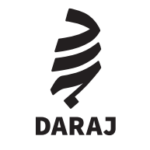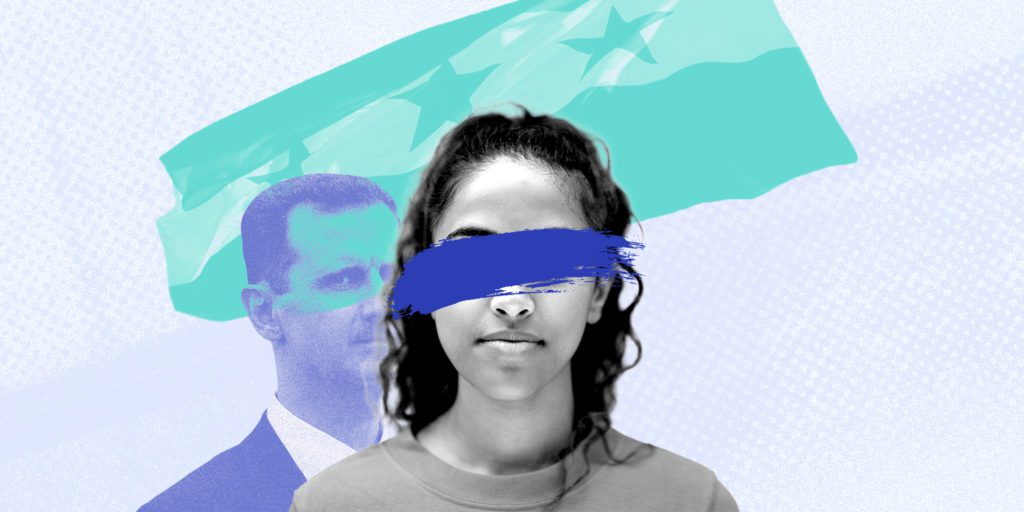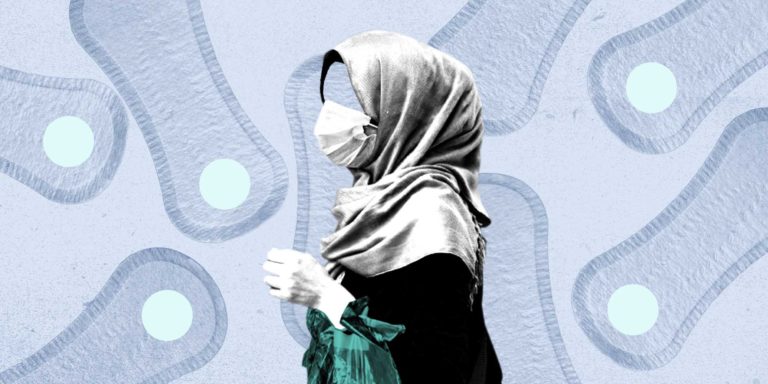According to Dubai-based Orient News TV, Abdel Moneim Rahmoun, leader of the Al-Hamza Division, tortured his 20-year-old daughter Rahaf in the village of Bilan in the countryside of Afrin. Rahaf, who has special needs, was taken to a hospital. Photographs showed the effects of torture and burns on her body.
Between the Brutality of the Regime and the Armed Opposition
As the ideas and principles that carried the revolution ten years ago were overturned, the concept of the leader has become a reflection of the patriarch in the family and the political arena. Patriarchal authority at home, and in politics, means intimidation, exclusion of women and abuse of the most vulnerable, including children and people with special needs.
It is a disturbingly repetitive scene. Last November, Ahmed Modhesh Shaker shot his three children following a dispute with his wife. The children had refused to go with him when he decided to leave and wanted to take them with him.
Nahla Al-Othman died after her father had tied her with iron chains and locked her in an iron cage. A member of the Sultan Murad Division filmed himself while brutally beating his daughter in an attempt to pressure his wife.
The Turkish government, for one, does not seem overly concerned with such issues, nor the behavior of the Syrian factions under its control.
Violations in Afrin
The stories are part of a pattern. It is part of what the rebel factions are doing in Afrin to intimidate the population. In a report issued by the UN Commission of Inquiry on Syria, former detainees described how they were beaten, tortured and raped by members of the Syrian National Army, of which the Hamza Division is a part.
Women were held in solitary confinement and harassed in front of male detainees. Male relatives were forced to listen to their screams, as they were tortured or assaulted. Civilians of Kurdish origin continue to be unlawfully deprived of their liberty by various brigades belonging to the Syrian National Army.
These are only the incidents that have come to the surface. Many others remain hidden, taking place behind closed doors, threatening to consolidate the suppression of freedom and normalize domestic violence without any supervision or laws to deter the aggressors in place.
Every time the story of a rebel leader assaulting his family spreads, his faction rushes to arrest him. But we never know if he is really being held accountable or imprisoned. Politics and patriarchy are strongly linked, especially in Arab countries. In Syria the cruelty of the patriarchal system increased as the Assad regime’s brutality worsened.
It is as if the latter let itself commit massacres as an implicit kind of permission for all men to viciously exercise their authority over women and children.
This includes the armed opposition. The rebel leader beat and tortured his daughter suffering from cerebral atrophy in a country that does not protect people with special needs, and turns the most vulnerable into victims.
It is the same system that tortured children in Deraa, which signaled the start of the revolution. It begs the question: how can opposition leaders be trusted when they apply the same approach as practiced by the regime?
Read Also:
Community Support
Interestingly, the people of the village stood up to try and save Rahaf and document the effects of torture. This was arguably a first. Society generally does not interfere in family affairs. It tends to leave it up to the father on the ground that these are private matters.
However, as Rahaf’s story spread on social media, a mobilization of the so called Committee for the Restitution of Rights in the city of Afrin took place, which in turn prompted the Al-Hamza Division to send out a patrol to arrest its leader. However, as said, it has not been confirmed if he was indeed found and arrested.
The intervention of neighbors, relatives and others in the community could be seen as a turning point when it comes to cases of (extreme) violence.
It happened in the case of the murder of Ayat Al-Rifai in Damascus. She topped the social networking sites in the Arab world after being tortured and killed by her husband on New Year’s Eve. If Ayat’s friend had not published the story online, no one would have known about it, and the crime would not have turned into a national debate.
To come to a solution for such cases of extreme violence is very complicated, given that almost every region in Syria is ruled by a different faction under the patronage of a different country. The Turkish government, for one, does not seem overly concerned with such issues, nor the behavior of the Syrian factions under its control. The intervention of neighbors, relatives and others in the community could be seen as a turning point when it comes to cases of (extreme) violence.
It happened in the case of the murder of Ayat Al-Rifai in Damascus. She topped the social networking sites in the Arab world after being tortured and killed by her husband on New Year’s Eve. If Ayat’s friend had not published the story online, no one would have known about it, and the crime would not have turned into a national debate.
To come to a solution for such cases of extreme violence is very complicated, given that almost every region in Syria is ruled by a different faction under the patronage of a different country. The Turkish government, for one, does not seem overly concerned with such issues, nor the behavior of the Syrian factions under its control.
Read Also:








